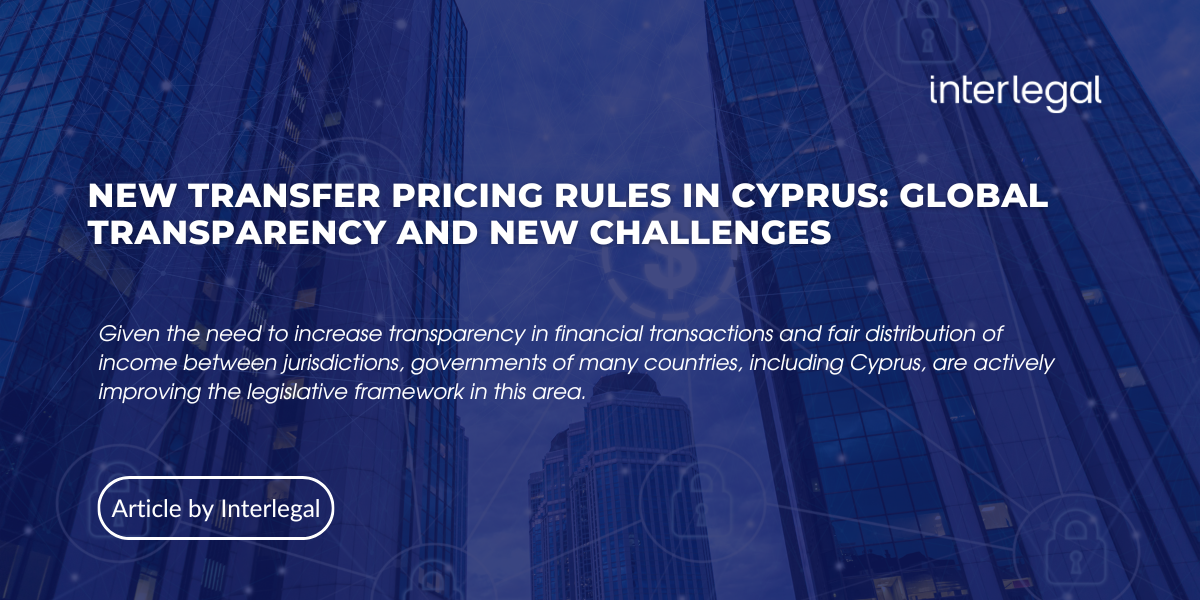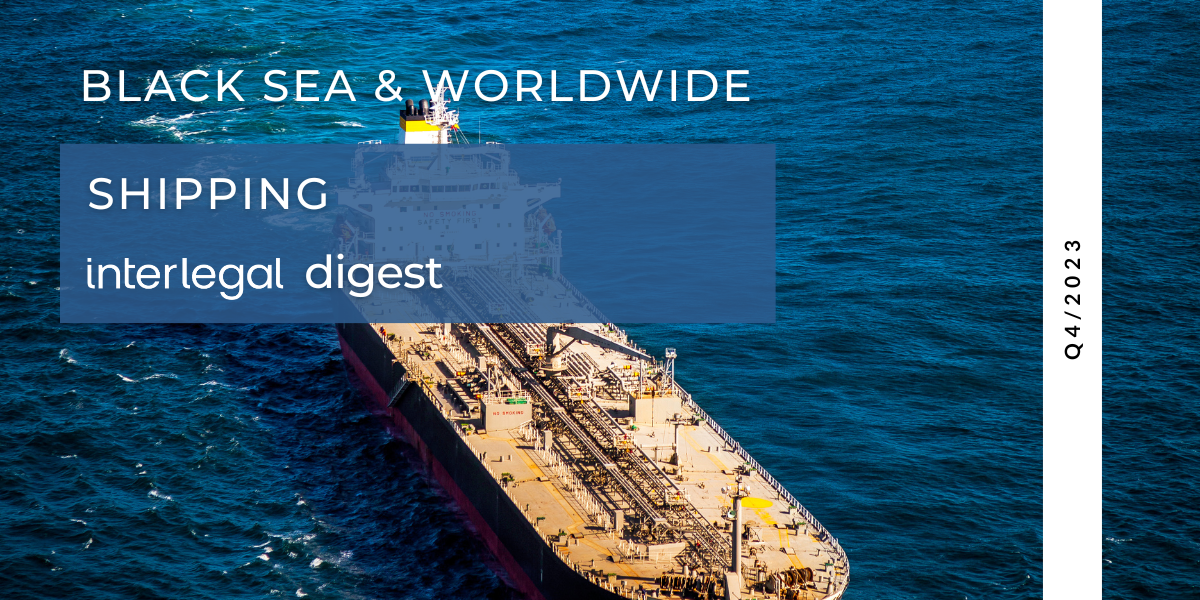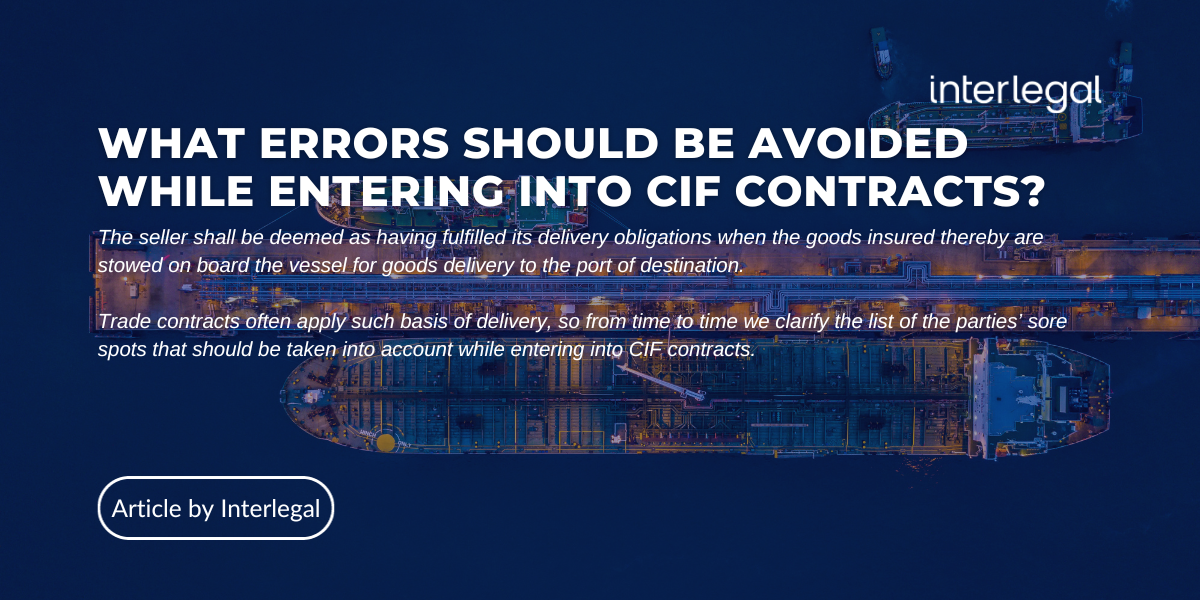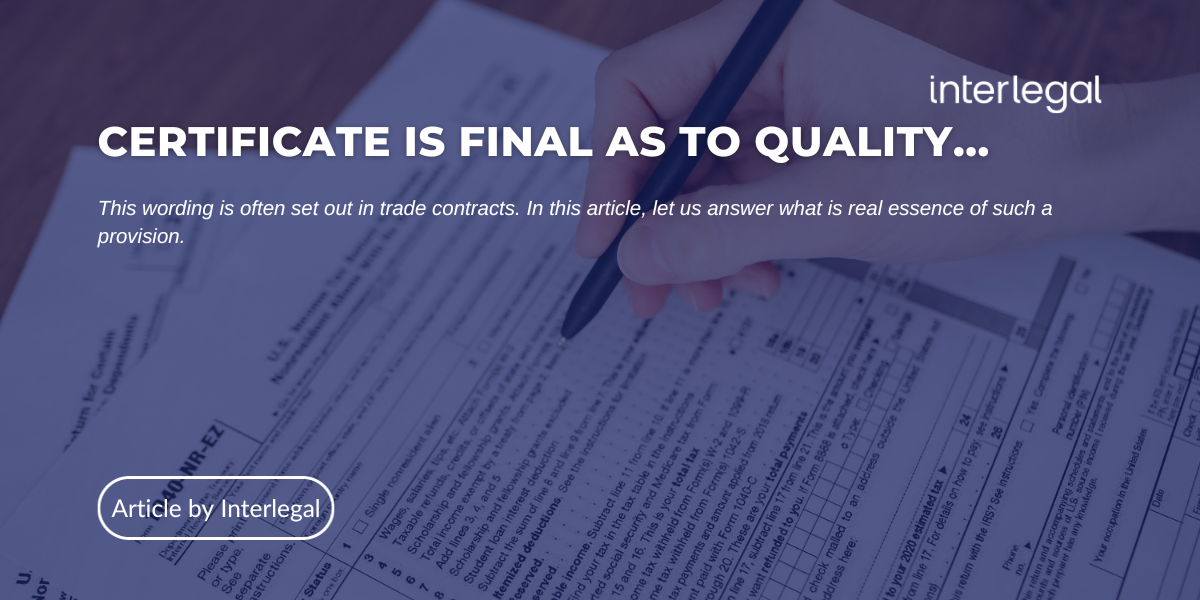Getting the deal through: shipping (2009)
2 September, 2009
3
Newbuilding contracts
1 When does title in the ship pass from the shipbuilder to the shipowner? Can the parties agree to change the time when title will pass?
Title in the ship passes from the shipbuilder to the shipowner, in accordance with the general rule, at the moment of delivery. Another time for the title to pass can be provided for in the contract between the parties. The legal delivery of the vessel is determined by the certificate of acceptance. A ship under construction cannot be registered in Ukraine. Parties can agree that title in the ship belongs to the shipowner from the very beginning of ship construction.
2 What formalities need to be complied with for the refund guarantee to be valid?
The refund guarantee has no wide practice in Ukraine due to the high level of formalities stipulated by the local legislation and the weakness of the banking system. It is a huge problem for Ukrainian banks, shipowners and shipbuilders, and they try to solve this problem by use of diverse instruments.
3 Are there any remedies available in local courts to compel delivery of the vessel when the yard refuses to do so?
The shipbuilding contract is an agreement for the construction of the res and transfer of the work results to the shipowner. It creates the substantive base for the shipowner to make a claim in the local court to compel delivery of the res (vessel) when the yard refuses to do so. The yard has to repair the damages.
4 Where the vessel is defective and damage results, would a claim lie in product liability against the shipbuilder at the suit of the shipowner; a purchaser from the original shipowner; or a third party that has sustained damage?
Where the vessel is defective, the shipbuilder bears product liability at the suit of the original shipowner. Product liability may be placed by the purchaser on the seller or on the shipbuilder, despite the latter not being a party to the sales contract. The vessel is a source of increased danger; therefore, the party that has sustained damage has the right to indemnification against the shipowner or other person in possession of the vessel. In accordance with the general rule, the party that has sustained damage has the right to indemnification against the wrongdoer.
Ship registration and mortgages
5 What vessels are eligible for registration under the flag of your country?
Right of sailing under the state flag of Ukraine belongs any ship that is under state ownership of Ukraine or is the property of a citizen of Ukraine, or a legal entity of Ukraine established solely by Ukrainian owners, or the vessel being in possession of such person on bareboat charter terms. Thus, if a non-resident has a share in the property (in the vessel), this vessel cannot be registered in the Ukrainian Ship Registry which is exclusively national.
6 What are the requirements for company formation?
According to the law, all business companies are legal entities endowed with separate property; governed by their founding documents, as approved by their participants; and conducting business under their own unique name. Official registration is an obligatory condition to establishing a business company. Most business companies are created as LLCs and PLCs. If the owner is a foreign legal entity, an extract from the trade, bank or court register must be produced to certify registration of the investor in the country of origin. Also, a company charter and a power of attorney (proxy) demonstrating the individual who will represent the company in Ukraine with references to the opening of a legal entity are recommended. It takes about 10 days to incorporate a company, but all filings are made over approximately one month.
7 Is dual registration and flagging out possible and what is the procedure?
In Ukraine, parallel in/out registration is possible under the bareboat charter for the term of its validity, under the condition that the foreign state’s legislation allows the vessel to enter more than one register. Other conditions of registration in the Ukrainian ship registry (for example, no foreign element in the shipowners’ company) must be complied with. A copy of the bareboat charterparty, the written consent of the shipowner and a written consent for the parallel registration from the competent body of the state of foreign registration of a vessel are to be presented.
8 Who maintains the register of mortgages and what information does it contain?
The State Registry of Encumbrances of Moveables is maintained by the Ministry of Justice of Ukraine. This register contains the following information:
• details about the mortgagee and the mortgagors;
• grounds of origin of the encumbrance and its content;
• description of the object of mortgage;
• information about limitation of the right of the debtor to dispose of the object;
• details of the registrator; and
• date of the state registration.
Although the vessel can be treated as immoveable property in Ukraine, a maritime mortgage is registered in the State Registry of Encumbrances of Moveables. Data on registered mortgages are sent to the harbour master of the port of registration.
Limitation of liability
9 What limitation regime applies? What claims can be limited? Which parties can limit their liability?
The shipowner shall be liable for his of her obligations to his property to which an action for recovery may be brought in accordance with the law. The liability of a shipowner shall be limited in regard to claims arising from:
• death or injury to health of a person on board the vessel or loss of or damage to property located on board the vessel; and
• inflicting damage or losses to persons or property not located on board the vessel, in connection with sailing or operation of the vessel. If such damage is inflicted by the person not found on board the vessel, the shipowner may limit liability.
10 What is the procedure for establishing limitation?
If there is a claim brought to the court or arbitration and the defendant intends to limit liability, the defendant has the right (not the obligation) to establish a liability limitation fund. In fact, such practice is absent in Ukraine. The defendant is obliged to present other security for the claim by the order of the court. Thus, setting up a liability limitation fund is not necessary to plead limitation. The limitation fund is calculated according to the scale established by the Merchant Shipping Code of Ukraine. Its amount is tied to the vessel’s capacity.
11 In what circumstances can the limit be broken?
The shipowner’s liability shall not be limited if it is proven that damage was the result of actions made deliberately or presumptuously. A limitation of liability shall not be applied in respect of the following claims:
• salvage or general average;
• crew members and other employees of the shipowner;
• wreck removal; and
• damages from pollution, etc.
Port state control
12 Which body is the port state control agency? Under what authority does it operate?
The port state control agency is a division of the Office of the Harbour Master. The Harbour Master is subordinated to the Maritime Administration which is in its turn is subordinated to the Ministry of Transport and Communication of Ukraine.
13 What sanctions may the port state control inspector impose?
The port state control imposes following sanctions:
• not to permit leaving the port;
• to disallow the exploitation of vessels and performing works that threaten the life and health of people until the violations are eliminated, etc.
14 What is the appeal process against detention orders or fines?
The order of appeal against administrative penalties or other sanctions imposed by port state control authorities can be divided into two main branches: administrative and court trial. Administrative procedure envisages pleading to the harbour master and then to the manager of the port. Local courts are an alternative.
Classification societies
15 Which are the approved classification societies?
The approved classification societies are: Register of Shipping of Ukraine; American Bureau of Shipping, US; Bureau Veritas, France; Germanischer Lloyd, Germany; Hellenic Register of Shipping, Greece; Det Norske Veritas Classification AS, Norway; Russian Maritime Register of Shipping, Russian Federation.
16 In what circumstances can a classification society be held liable, if at all?
There are no circumstances in which a classification society is held liable for damages in Ukrainian shipping and maritime law, in practice or in theory.
Collision, salvage, wreck removal and pollution
17 Can the state or local authority order wreck removal?
A port, which is a public company subordinated to the Ministry of Transport and Communication, in agreement with the interested state authorities, shall set an adequate term for wreck removal and its relevant order. If the owner intends to order a wreck removal, he or she shall inform the nearest port thereof within one year of the accident. If the owner doesn\’t intend to order a wreck removal, the sea port shall have the right to take all necessary measures to wreck removal in case when sunk property presents an immediate threat to the shipping safety, human life or health or environment.
18 Which international conventions or protocols are in force in relation to collision, salvage and pollution?
In Ukraine the following international conventions are in force: International Convention for the Prevention of Pollution from Ships, 1973, as modified by the Protocol of 1978 (MARPOL 73/78), and Protocol of 1997 to amend MARPOL-73/78, International Convention on Maritime Search and Rescue, 1979 (SAR), International Rules of Preventing Collisions at Sea, 1972 (COLREG). The Convention for the Unification of Certain Rules of Law with respect to Collisions between the Vessels, 1910 and the International Convention of Salvage, 1989 are not in force in Ukraine.
19 Is there a mandatory local form of salvage agreement or is Lloyd’s standard form of salvage agreement acceptable? Who may carry out salvage operations?
There is mandatory local form of salvage agreement, recommended by the Chamber of Commerce and Industry in Ukraine. The Lloyd’s standard form of salvage agreement and other standard forms of salvage agreement are acceptable. Salvage operations may be carried out by a professional salvor and a rescuer, who is a volunteer. Usually the salvor is a shipmaster and other crew members. If the master of the ship in distress chooses one shipmaster from the alternatives, then, this shipmaster is the main salvor, who may enlist other shipmasters’ support in the rescue operation. The associate salvors must coordinate their activity with the main salvor. In Ukraine there is a public company, Maritime Accident Salvage Service, subordinated to the Ministry of Transport and Communication of Ukraine.
Ship arrest
20 Which international convention regarding the arrest of ships is in force in your jurisdiction?
No international conventions regarding the arrest of ships are in force in Ukraine. There is no special procedure as to arresting a foreign vessel, meaning that it is arrested as any other property.
21 In respect of what claims can a vessel be arrested? In what circumstances may associated ships be arrested?
A Ukrainian vessel in respect whereof the maritime claim has arisen may be arrested only on one of the following conditions:
• a claim referred to the category of privileged claims, particularly:
• claims arising out of labour relations, claims for reimbursing damage inflicted by injury, other impairment of health or death;
• claims arising out of nuclear damage and maritime environment pollution as well as elimination of said pollution
consequences;
• claims regarding port and channel dues;
• claims regarding salvage and payment of general average contribution;
• claims for reimbursement of losses resulting from collision of vessels or from other sea casualty, or from damage to port facilities and other property located in the port as well as to navigational aids; and
• claims for reimbursement of losses related to cargo or
baggage;
• claims based upon the vessel’s registered mortgage; and
• claims referring to the rights of vessel ownership or possession, etc.
The vessel’s flag or law governing the claim does not make a difference. Associated ships may be arrested in certain cases, like any other property of the defendant.
22 What is the test for wrongful arrest?
The person upon whose request the vessel has been arrested is liable for any losses inflicted on vessel’s owner or bareboat charterer as a result of wrongful arrest of the vessel.
23. Can a bunker supplier arrest a vessel in connection with a claim for the price of bunkers supplied to that vessel pursuant to a contract with the charterer, rather than with the owner, of that vessel?
It depends on the character of the charter. In the case of voyage charter or time charter the liability party is owner of the vessel, but in the case of bareboat charter the liability party is charterer.
24 Will the arresting party have to provide security and in what form and amount?
The court or commercial court may, as a condition of vessel’s arrest or its prolongation, request the arresting party to provide security, the amount and conditions of which are determined by the court. In practice this happens very rarely in Ukraine.
25 Who is responsible for the maintenance of the arrested vessel?
The shipowner or the person who maintains the vessel in general is responsible for the maintenance of the vessel under arrest.
Carriage of goods by sea and bills of lading
26. Are the Hague Rules, Hague-Visby Rules, Hamburg Rules or some variation in force and have they been ratified or implemented without ratification? (The United Nations Convention on Contracts for the International Carriage of Goods Wholly or Partly by Sea (The Rotterdam Rules) will be open for signature from September 2009 and will enter into force a year after the twentieth instrument of ratification, acceptance, approval or accession.) Is your state proposing to ratify, accept, approve or accede to the UN Convention on Contracts for the International Carriage of Goods Wholly or Partly by Sea? When does carriage at sea begin and end for the purpose of application of such Rules?
The Hague Rules, Hague-Visby Rules and Hamburg Rules are not ratified by Ukraine, but the regulations of the Hague Rules are implemented in Ukrainian maritime law without ratification. Carriage covers the period from the time when the goods are loaded on board up to the time when they are discharged.
27. Are there Conventions or domestic laws in force in respect of road, rail or air transport that apply to stages of the transport other than by sea under a combined transport or multimodal bill of lading?
There are no laws in force in respect of carriage under multimodal b/l. However combined transport and multimodal b/l have fairly good usage in practice. Association of International Forwarders of Ukraine is a national association of International Federation of Freight Forwarders Associations from 1994, and the members of this Association may use Combined Transport b/l and other forms of mentioned Federation, called FIATA according to acronym in French.
28 Who has title to sue on a bill of lading?
The cargo shall be delivered at the port of destination:
• on producing the straight bill of lading – to the consignee indicated in the bill of lading or to the person by whom it was endorsed;
• on producing the order bill of lading – to the shipper or the consignee, depending on to whose order it was made (‘to order of a shipper’ or ‘to order of a consignee’) and, if the said bill of lading contains endorsement, to the last person endorsed, or to the holder of the said bill of lading with the last blank endorsement; or
• on producing the bearer bill of lading – to the bearer of the said bill of lading.
So, correspondingly, the above persons have title to sue on a bill of lading.
29 To what extent can the terms in a charterparty be incorporated into the bill of lading? Is a jurisdiction or arbitration clause in a charterparty, the terms of which are incorporated in the bill, binding on a third-party holder or endorsee of the bill?
The terms of the contract not included in the bill of lading shall be obligatory to the consignee if there is a note in the bill of lading referring to a document wherein they are included. Thus, when the consignee and shipper/charterer is not the same person, the terms of charter are not obligatory to the consignee. But if in the bill of lading there is a note referring to the charterparty, then the charterparty terms are considered incorporated. The more general character of the note in the bill of lading is, the narrower is the range of the charterparty terms that can be incorporated into the bill of lading. The note like ‘all other terms – in compliance with charterparty’ is a note of the most general character. If some term in the charterparty does not make sense in the context of the bill of lading, then, this term is to be considered as unincorporated into the bill of lading.
If the content of the arbitration clause in the charterparty does not envisage consideration of disputes under the bill of lading, it cannot be incorporated, if not it can be incorporated in the bill and it is binding on a third parties.
30 Is the ‘demise’ clause or identity of carrier clause recognised and binding?
The demise clause and identity of carrier clause are not recognised and binding.
31 Is the shipowner liable for cargo damage where he is not the contractual carrier and what defences can he raise against such liability? In particular, can he rely on the terms of the bill of lading even though he is not a contractual carrier?
The shipowner is not liable for cargo damage where he or she is not the carrier under bill of lading and he or she cannot rely on its terms. The shipowner is liable for cargo damage if he or she is guilty of trespass or if the shipowner is liable on the claim of recourse.
32 What is the effect of deviation from a vessel’s route on contractual defences?
Any deviation of the vessel from the planned route with the purpose of saving life, vessels or cargoes at sea and, similarly any other reasonable deviation (if it has not been caused by wrongful actions of the carrier), shall not be considered a violation of the contract.
33. What liens (whether contractual or by operation of law, for example on the vessel, cargo, freights and sub-freights, etc) can be exercised?
The carrier is at liberty not to deliver the cargo until payment is received or secured. The carrier shall retain the right of lien on the cargo if he or she deposits the cargo in a warehouse not belonging to the consignee, provided the carrier informs the warehouse owner of the said right.
34 What liability do carriers incur for delivery of cargo without production of the bill of lading and can they limit such liability?
If the value of cargo has not been declared and included in the bill of lading, the reimbursement for a missing or damaged unit of cargo shall not exceed 666.67 units of account of the International Monetary Fund or 2.0 units of account per 1 kilogram of gross mass of the missing, damaged or spoiled cargo, whichever sum is greater.
35. What are the responsibilities and liabilities of the shipper?
Among the most important responsibilities and liabilities of the shipper are complete and distinct marking, proper packing of the cargo requiring tare and packing for safely deliver to the receiver of cargo. The shipper has to sign and hand in all necessary documents together with transferring the cargo to the carrier. These documents must contain all data necessary to issue the bill of lading or the other document providing the receipt of cargo for carriage. The shipper shall be liable to the carrier for any consequences which arose out of incorrect or incomplete data entered in said documents. The shipper shall timely pass over to the carrier all the documents related to cargo as required by the port, customs, sanitary and other administrative rules. The shipper shall be liable to the carrier for any losses caused by untimely transfer, incorrectness or incompleteness of these documents. Timely loading of cargo is one of the most important duties of the shipper. Delay of the vessel for completion of cargo loading entails demurrage, and completing the loading prior to expiration of lay time entails dispatch as an award to the shipper. If loading the vessel continue on the expiration of the demurrage time, the shipper have to recover the losses incurred to carrier, and the carrier may set the vessel to sea even if not available cargo is loaded on board by reasons not dependent on the carrier who preserves his right for receiving the freight In full. Usually the shipper has to advance the charter fright.
Jurisdiction and dispute resolution
36 Which courts exercise jurisdiction over maritime disputes?
Commercial courts and courts of general jurisdiction are the state courts which exercise jurisdiction over maritime disputes.
37 In brief, what rules govern service of court proceedings on a defendant located out of the jurisdiction?
The Law on International Private Law, Commercial Procedural Code, and the Civil Procedural Code contain the rules that govern service of court proceedings on a defendant located outside Ukraine.
38 Is there a domestic arbitral institution with a panel of maritime arbitrators specialising in maritime arbitration?
The Maritime Arbitration Commission at the Chamber of Commerce and Industry of Ukraine is a domestic arbitral institution with a panel of arbitrators specialising in maritime arbitration.
39 What rules govern recognition and enforcement of foreign judgments and awards?
Ukraine is a member of the New York Convention on the Recognition and Enforcement of Foreign Arbitral Awards of 10 June 1958. The UNCITRAL Model Law on International Commercial Arbitration of 21 June 1985 is the basis of the Law on International Commercial Arbitration of 24 February 1994. The Rules of the International Commercial Arbitration Court and Maritime Arbitration Commission at the Ukrainian Chamber of Commerce and Industry are the Annex to this Law. Ukraine has been party to the Hague Convention on the Taking of Evidence Abroad in Civil or Commercial Matters of 18 March 1970 and the Convention on the Service Abroad of Judicial and Extrajudicial Documents in Civil or Commercial Matters of 15 November 1965. According to their regulations and regulations of Ukrainian domestic legislation, a judgment creditor can enforce a foreign judgment in Ukraine. Bilateral treaties between Ukraine and foreign countries also may be the legal grounds for enforcement. The enforcement of a foreign judgment may be implemented within three years from the date the judgment becomes effective.
40 What remedies are available if the claimants, in breach of a jurisdiction clause, issue proceedings elsewhere?
If the claimants issue proceedings in breach of a jurisdiction clause outside Ukraine, the defendants would have no remedies to stop or dismiss the matter by an action in Ukraine. But an award coming from such proceedings will rarely be enforced in Ukraine.
41 What remedies are there for the defendant to stop domestic proceedings that breach a clause providing for a foreign court or arbitral tribunal to have jurisdiction?
Filing a claim to the domestic court that breaches a jurisdiction clause is not qualified as infringement of justice if no party requests to stop or dismiss the matter. The court is obliged to dismiss the matter if one of the parties or both of them request it and the jurisdiction clause is not invalid or cannot be executed.
Limitation periods for liability
42 What time limits apply to claims? Is it possible to extend the time limit by agreement?
General limitation of action is established for three years. For certain types of claims the laws establish a special limitation of action. For recovery of a forfeit (penalty, fine, etc) or for disputes connected with freight a one-year limitation shall be applied. The limitation period established by the law may be extended by agreement of the parties in writing.
43 May courts or arbitral tribunals extend the time limits?
Upon an application of the claimant, the court may consider that the limitation period was missed for good reasons. Thus, the time limits may be extended.
Miscellaneous
44. Is it possible to arrest bunkers in your jurisdiction or to obtain an attachment order or injunction in respect of bunkers?
The arresting of bunkers is possible in Ukraine.
45. Can external factors, such as the recent global restriction on the availability of credit, affect the legal rights and liabilities of the parties to a shipping contract (that is to say a contract for the building, sale/purchase or hire of a ship, or a contract for the carriage of goods on a ship)?
There are no special legal provisions in Ukraine which affect to the legal rights and duties of the parties to shipping contracts as force majeure circumstances connected with transient factors of recent global economic crisis.
46 Are there any other noteworthy points relating to shipping in your jurisdiction not covered by any of the above?
The Merchant Shipping Code is the main source of maritime law. Beside pure shipping issues, it regulates sea pilotage, sea ports, shipping agency, marine insurance, etc. One should bear in mind the sea pilot service is performed by the state sea pilots only. The privatisation of sea ports is impossible in Ukraine. A sea port is a state-owned transport enterprise designed to provide services to vessels, passengers and cargo on the land and water area allotted thereto as well as to carry passengers and cargoes on board vessels that are port-owned. The list of sea ports of Ukraine, open for foreign vessels to call thereat, shall be determined by the Cabinet of Ministers of Ukraine and published in the Notices to Mariners. On the territory of the port, enterprises and organisations of any form of ownership may operate, their objective and type of business being serving the vessels, passengers and cargoes. A sea port has no right to interfere with the activities of these enterprises and organisations. In sea ports the harbour master and inspections headed by the harbour master are incorporated into the port structure. Thus, the manager of the port is a general manager who can give relevant orders to the harbour master. So, in Ukrainian ports, commercial and administrative functions have not been divided yet.
























































